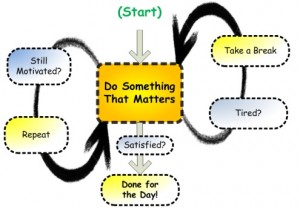The financial services industry is broken. We’ve known this for a very long time now. Take, for example, the $11B in overdraft-related fees charged by the nation’s biggest banks in 2019. Or, the way these fees disproportionately impact low-income and nonwhite customers. And let this sink in: Just 9% of customers paid 84% of that $11B in fees. These are customers who are already vulnerable to predatory banking practices, as they tend to carry “low” account balances. For some Americans, banking fees can cost them nearly $1,300 every year.
Now, think about the day-to-day reality for many Americans.
As of 2019, more than half of Americans are struggling with some aspects of their financial lives, and 17% are struggling with all, or nearly all, aspects. Two-thirds of Americans do not have six weeks worth of pay saved, and though the trend is improving, around 40% of Americans still report struggling to come up with $400 in an emergency. Women, of all ages, are nearly 10% more likely than men to report this lack of savings, and are 7% more likely to cite financial stress. And, the historical and structural barriers facing nonwhite Americans have led to the average Black family having only one-sixth the liquid savings of a white family. Importantly, 35% of Black Americans also report feeling as though their race, gender, or income has impacted their ability to secure—or receive a better rate on—various financial products or services.
Factor in COVID-19 and many of those already struggling now feel completely underwater. In the past few months alone, over 50M Americans filed for unemployment, with job loss disproportionately impacting Black Americans. More than 1 in 4 Americans tapped, or plan to tap, their retirement savings to help them get by. What’s more, over 40% of Americans put some, or all, of their stimulus funds toward immediate needs, such as bills or groceries. Another 30% of Americans don’t feel comfortable returning to work, but report needing the money.
This economic reality is why I’m calling for a fundamental rewiring of how we design, build, and run financial services. It’s why I’m fighting for innovation that meets the urgent needs of everyday consumers. It’s why I hate predatory fees, and why I’m asking financial institutions not to sacrifice empathy for profit.
To my current—and future—peers in financial services: This is on us, and now is the time.
Road map to equity
I believe it starts with taking the long view, and being prepared to adapt to the changing needs of Americans over time. This is twofold. First, it means committing to build products that support customers’ holistic financial needs, over the course of their lives. As it is, more than a third of U.S. households experience a +25% change in income year-to-year. This type of income volatility can make it incredibly difficult to adhere to some of the most well-known financial and budgeting recommendations. To address this, we need to consider how we’re designing products and delivering guidance so customers feel equally supported during tough and stable periods alike.
Next, it’s considering the many ways technology will continue to disrupt and reinvent how Americans access and manage their money—in the next year, five years, or 10 years. Already, technology has radically changed financial services. It’s why we’ve seen a rise in digital banks and a shift to subscription options for money management, no different than the monthly fee you pay for your streaming services. It’s made it possible for nearly all Americans to access the financial tools and guidance they deserve. But, there’s still work to be done.
It’s imperative that we continue creating products and services that remove the need—and reliance—on in-person or analog practices. You shouldn’t have to show up to a physical branch of your bank, for instance, to get help or to access your money. Fundamentally, innovation has the potential to dismantle some of the unjust barriers to entry that continue to persist. Think fractional share investing, which is still not universally offered, or using data to create hyper-personalized experiences and advice for every customer.
Finally, we cannot discriminate when it comes to empathy and understanding. As Americans navigate the long and winding road of their financial journeys, it’s inevitable they will stumble along the way. We all do. Think about it: What if your paycheck hits a day later than expected and you overdraw your account? How can we shift our practices—as an industry—so we accommodate every customer, not just those with large account balances, through life’s unexpected moments? There’s no such thing as a “bad” customer, only customers who have unique and evolving situations and goals. I want to live in a world where forgiveness and profit aren’t mutually exclusive.
I’m well aware that the vast and deep-rooted financial inequities in our country cannot be solved by one industry in a silo. This will take hard work and collaboration among financial institutions, technology startups, policymakers, and others. I’m also aware that this work is overdue, and it’s why I’m committed to doing my part in building a better, more equitable industry—an industry that is adaptable and resilient, that views customers as distinctive human beings, and that approaches technology and design with empathy and compassion. My fellow leaders in financial services and technology, are you with me?
Brandon Krieg, is the CEO and cofounder of Stash, a personal saving, investing, and banking app that lets users buy fractional shares of stocks and funds, bank, and learn personal finance skills.
(48)





